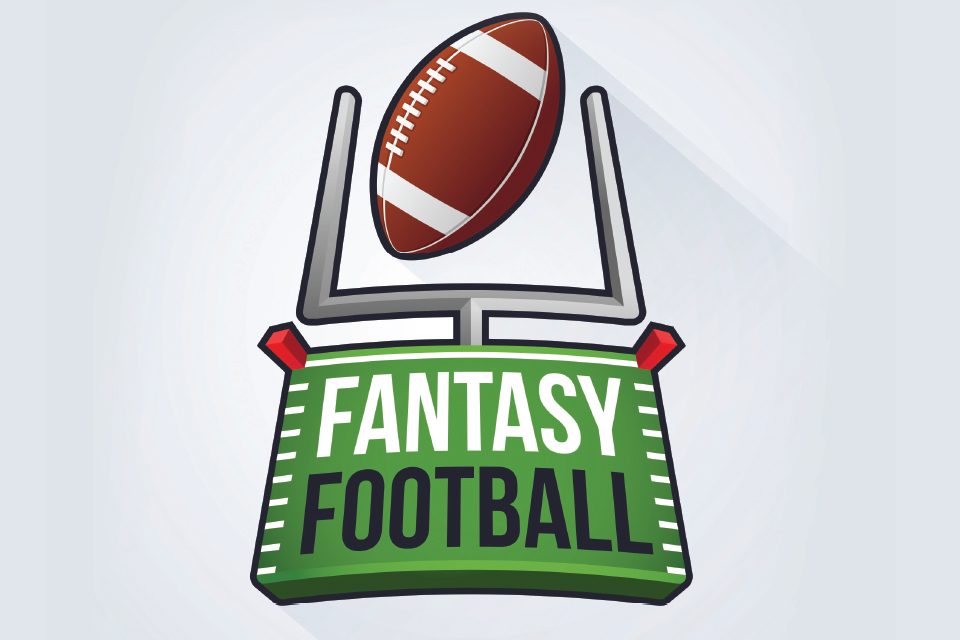Virtual Reality: The Frenzy of Fantasy Football

Take one look around your office on Monday and you’re bound to overhear a coworker singing the fantasy football blues. Even worse, you’re the one down in the dumps because Patriots quarterback Tom Brady ruined your Sunday by turning in a stinker. Misery loves company, but be sure to take solace in the fact that you’re hardly alone in your seasonal addiction.
Every week, millions of people log into their computers and spend countless hours studying the game of football. These individuals, including myself, are part of an ever-expanding mass of Americans who avidly play Fantasy Football, a game in which users compile their own virtual super teams by selecting individual players from various professional football teams. This, of course, shouldn’t be news to you.
But with every new season comes higher highs, lower lows, and a deeper dependency on the thrill of adjoining your successes with that of a professional player whom you’ll likely never meet. Just to be sure I wasn’t the only one immersed in this virtual form of fitness, I caught up with Kevin Anderson, a fellow Austinite and local fantasy guru, to talk shop and learn a few tricks of the trade.
To start, I ask Kevin to retrace his fantasy sports roots. Little did I know just how deep they run. “I first started playing Fantasy in middle school,” he explains. “My friends and I invented our own Fantasy basketball where we would get the Dallas Morning News during lunch and count all the stats ourselves. I’ve grown up with it.” Luckily for Kevin (and the rest of us), technology has since made playing Fantasy sports much easier.
This thirst for competition eventually led Kevin to Fantasy Football in 2007. Since then, he has participated in more leagues than he can count—including five this season—all the while compiling hoards of players, strategies, and tales of heartbreak.
“The human brain only has a capacity for emotional connection to three teams at most—and let’s be clear, we do this for the emotional connection,” he muses, leaving me wondering just how much he’s actually kidding. “Fantasy brings us mortals closer to the gods, and gives us the perception that we have control in this chaotic world.”
Based on Kevin’s comments alone, it’s easy to visualize why Fantasy Football players develop such deep-seated attachments to players on their teams. Now take into account that people typically play with their friends and coworkers, making every week an opportunity to win serious bragging rights. Factor in that many leagues present their winner with a cash prize, and you’ve got a recipe for a full-blown obsession.
Recently, a new wrinkle of Fantasy Football has mesmerized the nation and left football fans drooling at an even more enticing form of self-torture. How, you ask? Enter DraftKings and FanDuel, two websites that have come out of left field to stake their claims as legitimate moneymakers by revolutionizing the way people watch professional sports.
You’ve seen their advertisements by now, which have been broadcasted over every medium there is over the past year. Together, the two companies have spent over $150 million on advertising in the months of July, August, and September of 2015 alone. This seemingly endless budget, thanks to contributions made by mega-investors like Google, Comcast, Disney, and every major professional sports league, has allowed them to bombard people with advertisements roughly every 90 seconds.
But what makes these companies special, and why is seemingly every business juggernaut so eager to get in bed with them? Essentially, DraftKings and FanDuel have found a way to combine Fantasy Football with legalized gambling, hosting online tournaments that bring in millions of dollars every week. I know what you’re thinking: Wait, isn’t online gambling illegal? Absolutely. But these companies have seemingly outwitted the system, claiming their billion dollar enterprises revolve around “skill-based gaming,” which is legal in all but five U.S. states. Whether it’s skill-based is still up for interpretation, but as of now this has held up under intense scrutiny on the basis that it takes a sharp eye to predict which combination of players will perform best on a given day.
These two websites are the perfect storm for armchair quarterbacks with open wallets and lazy Sundays. They’ve taken a game that millions of people play and monetized it, creating the beautiful child that professional sports, casino gambling, and the lottery would produce if they were left alone together. Combine that with the fact that these companies have turned what was typically a season-long engagement into a daily contest –enabling users to mix-and-match lineups with multiple entries—and you can see how they can afford to hand out millions of dollars every week. This spells big trouble for every wannabe sports buff with an internet connection and a bad case of optimism.
I turned to Kevin for some insight on this new Daily Fantasy Football model, but even he felt a little iffy about it all. “I’m hesitant to try because I already feel like I’m in too deep with regular Fantasy. If I jump on that train, I’ll be a full-blown degenerate soon,” he laughs. When asked of their “skill-based” argument, he admitted that he doesn’t understand how DraftKings and FanDuel are legal and that he “would be surprised if they are still a thing in their current form a few years from now.”
If the argument of skill-based play is upheld, there’s no telling the revenue this new industry will generate for media outlets, professional sports franchises, and a few lucky fans. But plenty of time remains until any legal determination is made on whether Daily Fantasy Football is here to stay or simply a flash in the plan. Regardless, we can be certain of one thing: whoever starts the first Fantasy Football psychology practice is going to be paid handsomely.






